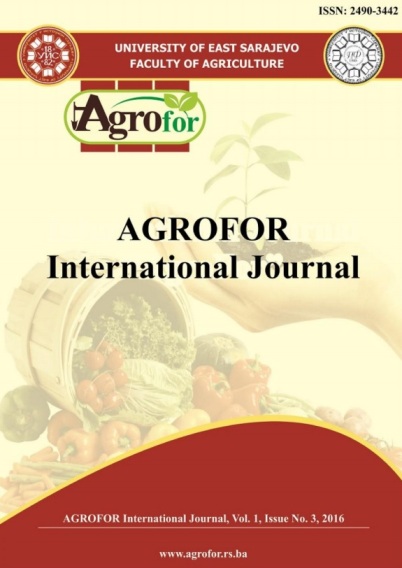SPECTROSCOPIC CHARACTERIZATION OF HUMIC SUBSTANCES OF ANTHROPOGENIC SOILS DERIVED FROM TERRA ROSSA
DOI:
https://doi.org/10.7251/AGRENG1603005BAbstract
The aim of the study was spectroscopic characterization of humic substances and
evaluation of humus quality of anthropogenic soils derived from Terra Rossa. The
study was conducted on 15 soil samples collected from top-soil horizon of olive
groves in Middle Dalmatia (Croatia). Total organic carbon was determined
according to Walkley-Black method (1934) and humic substances isolation
following procedure given by Schnitzer (1982). Spectroscopic characterization of
isolated humic substances was carried out by measuring absorbance in VIS spectral
range 400-700 nm and optical indices (Q4/6, E4/6) were calculated. SOC content in
top-soil samples varied from 1.45% to 4.21% with mean value of 2.98%. The
absorption spectrum showed monotonous decrease of absorbance from 400 to 700
nm for all samples. The optical indices E4/6 and Q4/6 varied from 3.58 to 5.05 and
from 3.91 to 5.04, respectively and indicated differences of humus quality. The
optical index below 4, which implies a high quality of humus, was determined in
six samples. The low humus quality (optical index above 4) was determined in
other nine samples. The SOC content has significant positive correlation with
optical indices Q4/6 and E4/6. Soils with higher organic carbon content have lower
humus quality.

